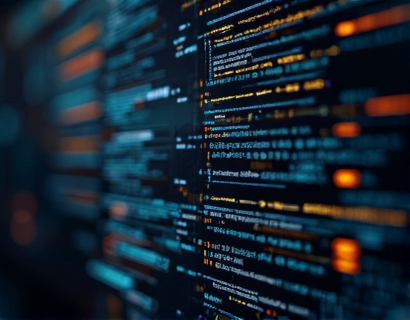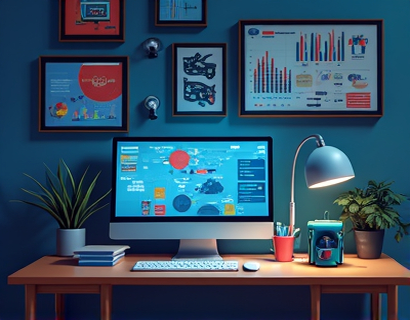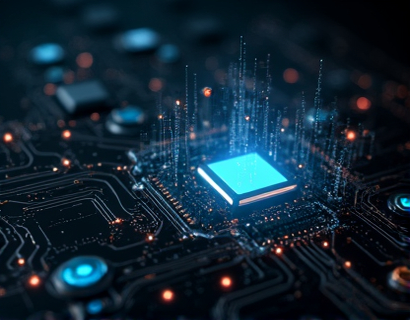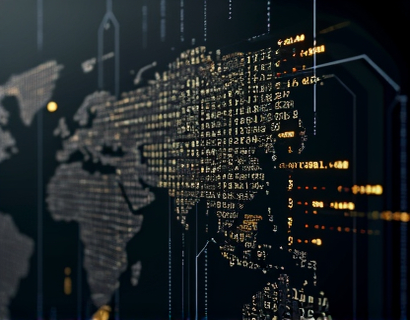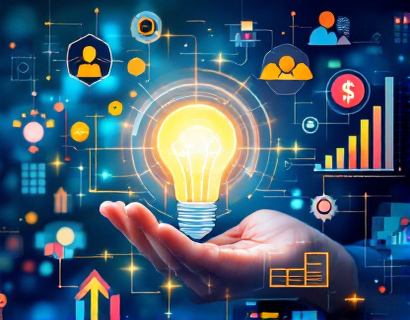AI-Driven Personal Organization: Unlock Efficiency with Intelligent Task Management Tools
In the fast-paced world of today, mastering the art of productivity is more crucial than ever. The integration of Artificial Intelligence (AI) into personal organization tools has revolutionized the way individuals manage their tasks, enhance focus, and streamline daily routines. This guide delves into the transformative power of AI-driven personal organization, offering practical insights and strategies to leverage advanced AI solutions for boosting efficiency and achieving goals. Whether you are a busy professional, a student, or someone looking to improve your daily effectiveness, understanding how to harness these intelligent tools can significantly enhance your organizational skills and overall productivity.
Understanding AI in Personal Organization
AI-driven personal organization tools are designed to understand and adapt to individual habits and preferences. These tools use machine learning algorithms to analyze user behavior, predict tasks, and provide personalized recommendations. The core advantage of AI in personal organization lies in its ability to automate repetitive tasks, offer intelligent suggestions, and optimize time management. By integrating AI into your daily routine, you can free up mental space, reduce stress, and focus on high-value activities that drive meaningful results.
Key Features of AI-Driven Task Management Tools
AI-driven task management tools come equipped with a range of features that enhance their effectiveness. Some of the most notable features include:
- Automated Task Creation: These tools can automatically generate tasks based on emails, calendar events, and other digital interactions, ensuring nothing slips through the cracks.
- Smart Prioritization: AI algorithms assess the urgency and importance of tasks, providing a prioritized list that aligns with your goals and deadlines.
- Predictive Scheduling: By analyzing past behavior and upcoming commitments, AI can suggest optimal times for task execution, minimizing conflicts and maximizing productivity.
- Context-Aware Reminders: Instead of generic alerts, AI-driven reminders are context-sensitive, considering your current activity and environment to prompt you at the most relevant moments.
- Integration with Other Tools: Seamless integration with calendars, email clients, and other productivity apps ensures a cohesive and efficient workflow.
These features collectively create a robust system that not only manages tasks but also learns and adapts to your evolving needs, making the process of personal organization more intuitive and effective.
Enhancing Focus and Reducing Distractions
One of the significant challenges in maintaining productivity is staying focused amidst a myriad of distractions. AI-driven personal organization tools address this issue by implementing features designed to minimize interruptions and maintain concentration. For instance, some tools offer a "focus mode" that blocks distracting notifications and apps during designated work periods. Additionally, AI can analyze your work patterns to identify peak productivity times and suggest scheduling important tasks accordingly. By creating an environment that fosters concentration, these tools help you stay on track and achieve more in less time.
Streamlining Daily Routines
AI-driven personal organization tools are not just about managing tasks; they are also about optimizing your daily routines. By understanding your habits and preferences, AI can suggest improvements to your morning and evening routines, helping you start and end your day more efficiently. For example, AI can recommend the best time to exercise based on your energy levels and schedule, or suggest a personalized morning briefing to prepare you for the day ahead. In the evening, AI can assist with winding down by suggesting relaxation activities and preparing your to-do list for the next day. These small yet impactful adjustments can significantly enhance your overall daily experience and contribute to a more structured and fulfilling life.
Goal Setting and Achievement
Setting and achieving goals is a critical component of personal and professional growth. AI-driven personal organization tools provide powerful features to support this process. These tools can help you set SMART (Specific, Measurable, Achievable, Relevant, Time-bound) goals and break them down into actionable steps. AI can track your progress, offer motivational prompts, and adjust your plans based on your performance. By providing real-time feedback and insights, AI ensures that you stay on the path to achieving your objectives, making the process of goal setting and accomplishment more manageable and rewarding.
Customization and Personalization
Every individual is unique, with different preferences, work styles, and goals. AI-driven personal organization tools recognize this diversity by offering high levels of customization and personalization. Users can tailor the tools to fit their specific needs, choosing which features to enable, customizing interfaces, and setting personal preferences. This level of adaptability ensures that the tools not only meet but exceed user expectations, providing a personalized experience that evolves over time. By aligning with your individual needs, AI-driven tools become an indispensable part of your daily routine, enhancing both efficiency and satisfaction.
Case Studies and Real-World Applications
To better understand the practical benefits of AI-driven personal organization, let's explore a few real-world applications and case studies:
A busy marketing manager uses an AI-powered task management tool to streamline her workflow. The tool automatically creates tasks from email communications, prioritizes them based on deadlines and importance, and integrates with her calendar to schedule meetings and deadlines. As a result, she reduces her time spent on manual task management by 30%, allowing her to focus more on strategic planning and creative work. Another example is a student who uses an AI-driven planner to manage assignments and study sessions. The tool suggests optimal study times based on the student's performance data and upcoming exams, leading to better grades and reduced stress levels. These case studies demonstrate how AI-driven tools can transform the way individuals manage their time and tasks, leading to significant improvements in productivity and well-being.
Challenges and Considerations
While AI-driven personal organization tools offer numerous benefits, it's essential to be aware of potential challenges and considerations:
- Data Privacy: Ensuring that your personal data is secure and handled with the utmost care is paramount. Choose tools from reputable providers with strong privacy policies and encryption measures.
- Over-Reliance: While AI can greatly assist, over-reliance on these tools can hinder the development of essential skills. Maintain a balance by using AI as a supplement to your natural abilities.
- Learning Curve: Some users may find the initial setup and customization of AI tools time-consuming. However, the long-term benefits often outweigh the initial effort.
- Accuracy: AI is not infallible, and there may be instances where suggestions or predictions are not entirely accurate. Stay vigilant and adjust the tools as needed to better align with your preferences.
By being mindful of these factors, you can maximize the benefits of AI-driven personal organization tools while minimizing potential drawbacks.
Future Trends in AI-Driven Personal Organization
The field of AI in personal organization is rapidly evolving, with several exciting trends on the horizon:
1. Enhanced Natural Language Processing (NLP): Improved NLP capabilities will enable more natural and intuitive interactions with AI tools, making them even more user-friendly and effective.
2. Emotional Intelligence: Future AI tools may incorporate emotional intelligence to better understand and respond to users' emotional states, providing more empathetic and supportive guidance.
3. Integration with Wearable Technology: Combining AI with wearable devices can offer real-time health and wellness insights, further optimizing personal organization and productivity.
4. Autonomous Task Execution: Advanced AI may soon be capable of not only suggesting tasks but also executing them autonomously, such as booking appointments or making reservations, further streamlining the organizational process.
These advancements promise to make AI-driven personal organization even more powerful and integrated into our daily lives, offering unprecedented levels of efficiency and convenience.
Conclusion
AI-driven personal organization tools represent a significant leap forward in the quest for productivity and efficiency. By automating routine tasks, enhancing focus, and providing intelligent recommendations, these tools empower individuals to achieve more with less effort. Whether you are looking to optimize your daily routine, set and achieve goals, or simply manage your time better, AI-driven personal organization tools offer a wealth of benefits. Embracing these innovative solutions can lead to a more structured, fulfilling, and successful life. As the technology continues to evolve, the potential for even greater improvements in personal organization is vast, making it an exciting time to explore and leverage AI in your daily life.





